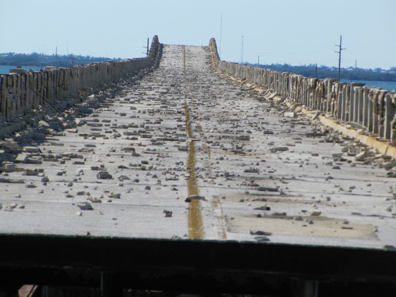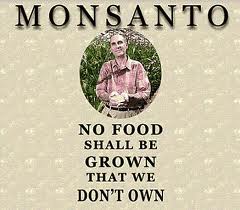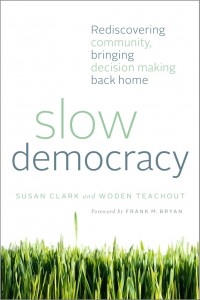Local Green Activism
Save the Planet, Starting on Your Own Block
by Jay Walljasper
After 40 years of what felt like progress in protecting our environment, the ecological crisis now seems to be worsening. Climate change, caused by greenhouse gas emissions, is heating up. The massive exploitation of the tar sands in Canada might be the tipping  point, from which we can never return. Fracking for natural gas and oil threatens underground water supplies. The oceans are being massively over-fished. Species extinction is accelerating.
point, from which we can never return. Fracking for natural gas and oil threatens underground water supplies. The oceans are being massively over-fished. Species extinction is accelerating.
The global commons faces massive threats no one could have dreamed on the first Earth Day back in 1970. What are we to do?
Obviously we need to address these mounting global crises — vocally and determinedly over the long term. But it’s also time to take a look around our own communities.
While we generally think of Greens rallying to save rain forests, coral reefs, deserts and other faraway tracts of wilderness, that’s just one aspect of saving the Earth. It’s also crucial to work together with neighbors on important projects in our own backyard. (more…)
 hippies). When a grassroots wing of the environmental movement went after road building and pavement (tarmac) two decades ago, it was quite fringy for mainstream enviros. Then when we went after plastics a decade ago, this too was considered “out there,” and kept low on the list of concerns for the average campaigner.
hippies). When a grassroots wing of the environmental movement went after road building and pavement (tarmac) two decades ago, it was quite fringy for mainstream enviros. Then when we went after plastics a decade ago, this too was considered “out there,” and kept low on the list of concerns for the average campaigner.




